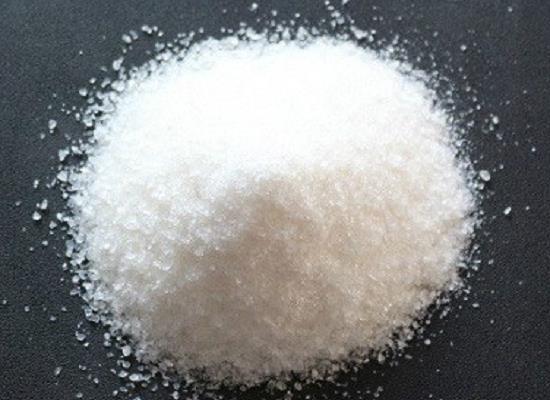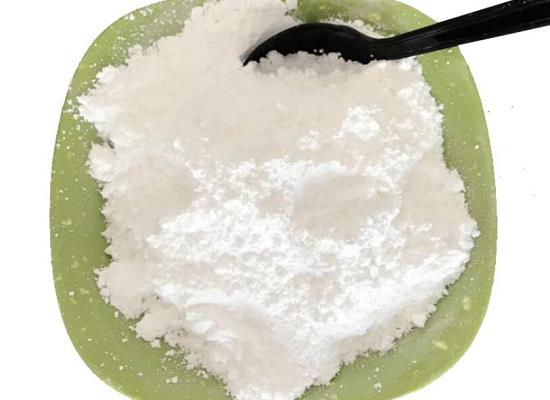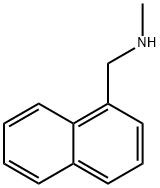1-Methyl-aminomethyl naphthalene: properties, applications and safety
Dec 12,2023
General Description
1-Methyl-aminomethyl naphthalene is a versatile chemical compound with a range of properties and applications. It is a white to light yellow clear liquid with a characteristic odor, and it has good solubility in organic solvents. Notably, it acts as a fluorescent dye, emitting intense blue fluorescence when exposed to ultraviolet light. It also exhibits excellent thermal stability and resistance to degradation. Due to these properties, it finds applications in fields such as organic synthesis, pharmaceutical research, analytical chemistry, and materials science. Specifically, it plays a crucial role in the synthesis of terbinafine hydrochloride, an antifungal medication used to treat various fungal infections. However, it is important to handle this compound with care as it is toxic if swallowed, harmful if inhaled or in contact with skin/eyes, and toxic to aquatic life.
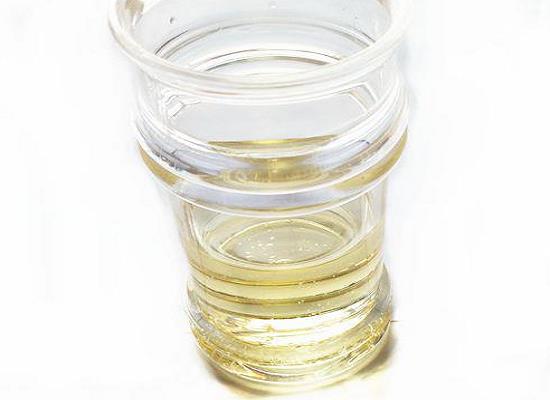
Figure 1. 1-Methyl-aminomethyl naphthalene
Properties
1-Methyl-aminomethyl naphthalene is a chemical compound with diverse properties and applications. 1-Methyl-aminomethyl naphthalene is an aromatic amine that consists of a naphthalene core with a methyl group and an aminomethyl group attached to it. In terms of physical properties, 1-Methyl-aminomethyl naphthalene appears as a white to light yellow clear liquid with a characteristic odor. It has a melting point of around 189.5-190°C and a boiling point of approximately 104°C. 1-Methyl-aminomethyl naphthalene possesses good solubility in organic solvents such as ethanol, ether, and chloroform. One of the notable properties of 1-Methyl-aminomethyl naphthalene is its ability to act as a fluorescent dye. It emits intense blue fluorescence when exposed to ultraviolet light, making it useful in various applications like fluorescence microscopy, imaging techniques, and as a tracer in biological studies. Additionally, 1-Methyl-aminomethyl naphthalene exhibits excellent thermal stability and resistance to degradation, making it suitable for applications in high-temperature environments. It is also known for its low toxicity and relatively low volatility, which contributes to its safety profile. Due to these properties, 1-Methyl-aminomethyl naphthalene finds applications in diverse fields such as organic synthesis, pharmaceutical research, analytical chemistry, and materials science. 1
Applications
1-Methyl-aminomethyl naphthalene is a chemical compound that finds application in the synthesis of terbinafine hydrochloride. Terbinafine hydrochloride is an antifungal medication used to treat various fungal infections, such as athlete's foot, jock itch, and ringworm. 1-Methyl-aminomethyl naphthalene plays a crucial role in the preparation of terbinafine hydrochloride due to its unique properties. It serves as a key intermediate in the synthetic pathway, enabling the conversion of precursor compounds into the desired final product. Specifically, 1-Methyl-aminomethyl naphthalene acts as a reagent in the formation of the key functional group within the terbinafine molecule. The synthesis of terbinafine hydrochloride using 1-Methyl-aminomethyl naphthalene involves several well-defined chemical reactions, including condensation, cyclization, and subsequent hydrochloride salt formation. 1-Methyl-aminomethyl naphthalene acts as a building block, providing the necessary molecular framework for the targeted antifungal activity. The utilization of 1-Methyl-aminomethyl naphthalene in the production of terbinafine hydrochloride showcases its significance in the pharmaceutical industry. Through careful design and optimization of the synthetic route, 1-Methyl-aminomethyl naphthalene facilitates the efficient and reliable synthesis of this important antifungal drug. In summary, 1-Methyl-aminomethyl naphthalene plays a vital role in the synthesis of terbinafine hydrochloride, contributing to the production of a widely used antifungal medication with therapeutic benefits in treating various fungal infections. 2
Safety
1-Methyl-aminomethyl naphthalene is a chemical compound that requires careful handling due to its potential safety hazards. It is important to be aware of the risks associated with this substance to ensure proper precautions are taken. Firstly, it is toxic if swallowed, meaning ingestion can be harmful and may result in adverse health effects. Additionally, it is also harmful if swallowed, indicating that even small amounts can cause harm to the body. Furthermore, 1-Methyl-aminomethyl naphthalene is known to cause severe skin burns and eye damage upon contact. It can lead to skin irritation and serious eye irritation, which necessitates the use of protective equipment such as gloves and goggles when handling this compound. In addition, exposure to this chemical may cause respiratory irritation, indicating potential discomfort or harm to the respiratory system. It is crucial to work in well-ventilated areas and use appropriate respiratory protection if necessary. Moreover, 1-Methyl-aminomethyl naphthalene is toxic to aquatic life, both with immediate and long-lasting effects. This means that it can have detrimental impacts on aquatic organisms and ecosystems. It is essential to prevent this substance from entering water bodies to protect the environment. In summary, 1-Methyl-aminomethyl naphthalene poses various safety concerns, including oral toxicity, skin and eye damage, respiratory irritation, and harm to aquatic life. 3
Reference
1. N-Methyl-N-naphthylmethylamine. National Center for Biotechnology Information, 2023, PubChem Compound Summary for CID 84474.
2. A kind of preparation method of terbinafine hydrochloride. National Center for Biotechnology Information, 2023, PubChem Patent Summary for CN-114380696-B.
3. N-methylnaphthalene-1-methylamine. European Chemicals Agency, EC/List no. 238-497-3.
- Related articles
- Related Qustion
- 1-Methyl-aminomethyl naphthalene-Application Dec 19, 2019
1-Methyl-aminomethyl naphthalene has been used as reagent for the determination of isocyanates in air by UV or fluorescence detection.
2-Chloro-4,6-diphenyl-1,3,5-triazine is used in organic synthesis and electronics, but its handling requires caution due to safety concerns and potential harm to humans and aquatic life.....
Dec 11,2023API4-Fluoro-2-Methoxy-5-nitroaniline is a valuable intermediate in organic synthesis and medicinal chemistry, with caution required due to its toxicity.....
Dec 12,2023API1-Methyl-aminomethyl naphthalene
14489-75-9You may like
1-Methyl-aminomethyl naphthalene manufacturers
- 1-Methyl-aminomethyl naphthalene
-
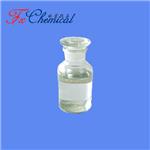
- $0.00 / 1KG
- 2024-11-04
- CAS:14489-75-9
- Min. Order: 1KG
- Purity: 98%min
- Supply Ability: 30tons/month
- 1-Methyl-Aminomethyl-Naphthalene
-
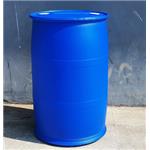
- $5.00 / 1KG
- 2024-10-11
- CAS:14489-75-9
- Min. Order: 1KG
- Purity: 99%
- Supply Ability: 10000kg
- 1-Methyl-aminomethyl naphthalene
-

- $0.00 / 25kg
- 2024-09-24
- CAS:14489-75-9
- Min. Order: 1kg
- Purity: 20000kg
- Supply Ability: 99%




